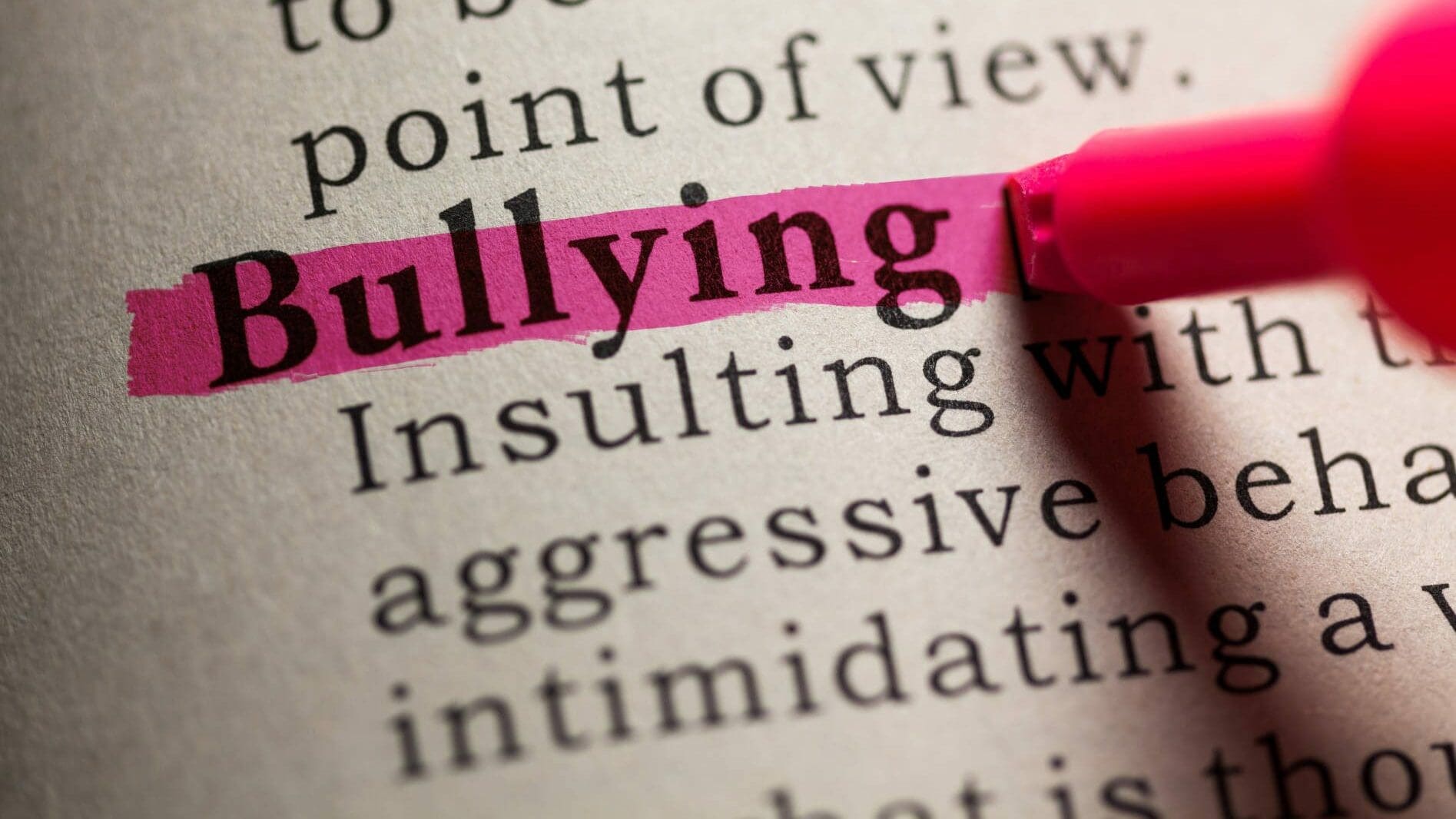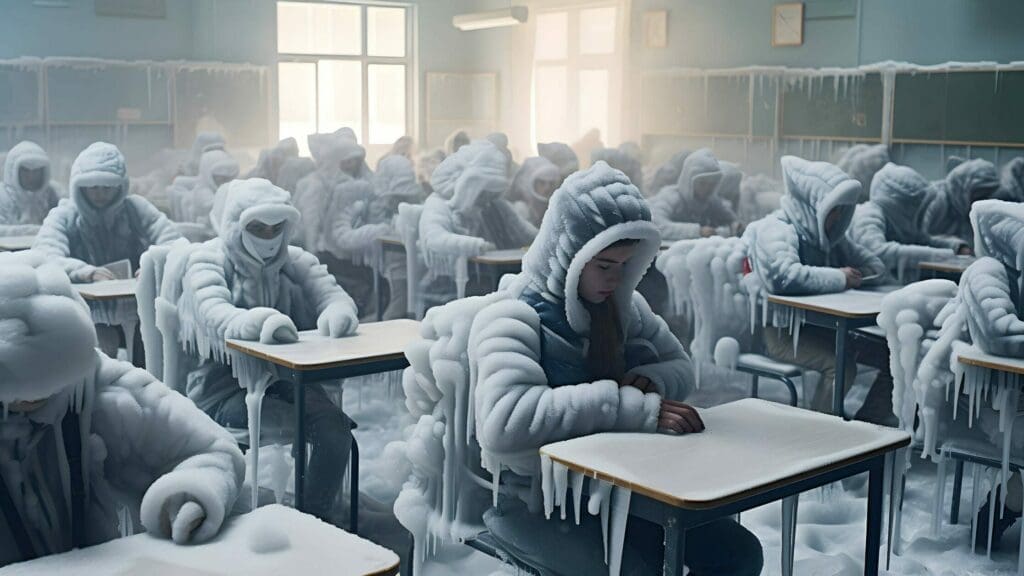
How can we help teenagers understand the process of bullying so they, together with their parents, can react and stand against it?
Bullying, according to the Cambridge Dictionary is: “The behaviour of a person who hurts or frightens someone smaller or less powerful, often forcing that person to do something they do not want to do.”
Understanding the process of bullying helps us respond with more social intelligence, avoiding passivity while also reducing stress and toxic environments, whether caused directly or indirectly. We are all participants; And therefore responsible; In these situations.
Clémence Mary, writing in Libération on March 17, 2023, highlighted the thesis of Margo Deage, who draws attention to the underlying mechanics of bullying.
Margo Deage describes bullying not merely as using someone as a “Human shield,” but more accurately as turning them into a “Lightning rod“; A powerful metaphor illustrating how one individual absorbs the collective negativity, anger, or stress of others.
Bullying is a deeply complex issue. It creates a vicious cycle, An atmosphere where tension, stress, and toxicity spread like a black hole or tornado pulling everyone in. It’s extremely difficult for a single person to stop this process, just as it’s hard to stop the elements; Wind, fire, or water. Often, people don’t notice what’s happening until the damage impact them personally.

The real danger is that everyone becomes mentally and physically trapped in such “A Toxic Environment.”
Mindfulness teachers remind us: when you start to see signs of fire, act quickly; Before it spreads beyond control.
There’s always a way to intervene and disrupt toxic dynamics. Reversing toxicity is a virtuous process, beneficial not just for a few, but for everyone involved.
Article from the French newspaper Libération:
Margot Déage: “At secondary school, reputation defines a teenager’s identity and value.”

How is a reputation formed at the age of 13? By what mechanisms does one become a popular pupil or a scapegoat? The sociologist analyses the creation of rumours and bad reputations, of which school bullying can be the ultimate form.
(Mia Oberländer/Libération)
by Clémence Mary
In late December and early January, the suicides of Ambre, 11 years old, and then Lucas, 13, both victims of school bullying or homophobic harassment, brought renewed attention to the public’s inability to stem this scourge. Although such acts are rare, between 800,000 and 1 million children are reportedly victims of school bullying each year, according to a Senate report published in 2021. For her thesis, published under the title At the School of Bad Reputations (PUF, 2023), Margot Déage, a sociologist at Jean-Jaurès University in Toulouse, immersed herself in the relationships among secondary school pupils through field research in four schools in Paris and the Île-de-France region. Secondary school corresponds to a life stage marked by strong conformity and extreme social control, she explains. Within the school’s closed community, teenagers judge each other: “Constantly giving opinions about others fuels conversations.“
In her study, the sociologist reveals a continuum of violence online and at school, to which not all young people are equally exposed: Girls are more often victims of sexual and online assaults, while boys more frequently suffer physical or verbal abuse. She sheds light on classist, sexist, racist, or homophobic dynamics, amplified by social networks that promote “bad reputations” at this crucial stage of social identity formation. Better listening from institutions, she argues, would raise awareness among young people.
- The Education Minister, Pap Ndiaye, has announced plans to strengthen the fight against bullying. What do you make of these declarations?
Since 2010, every successive government has addressed the issue following highly publicised incidents. Each year, thirty to forty children under 15 commit suicide, making it the third leading cause of death among 1-24 year-olds after illnesses and accidents [according to Inserm-CépiDc data for 2017]. But these acts are very complex phenomena, and only some are precipitated by bullying. Many announcements remain symbolic, despite the effective partnerships between the e-Enfance association and social networks. However, these actions cannot compensate for the lack of staff available to support children in their social lives beyond school.
- “When the State does not act, young people settle scores among themselves,” you write. Why is it so difficult to address the problem?
Behind the catch-all term “school bullying” lie diverse issues. Cyber-aggressions, sexism, or sexual violence are not accounted for in official figures, which include hitting, shoving, and relational violence. The 5.6% rate of secondary school pupils experiencing severe bullying, according to the latest national survey [2017], is greatly underestimated. Because the right words are not used, problems are misunderstood. When boys form an honour guard at recess to touch passing girls in full view of everyone, why call it bullying? I see sexual assault. When a pupil recounts that petrol was poured on her and she was threatened with a lighter, that is attempted murder. How many forms of violence will be included under this banner? Since these acts occur between children, it is assumed the school should handle them. Yet there are criminal and judicial qualifications for these acts.
- Why does this phenomenon crystallise at secondary school, while 94% of pupils say they feel good there?
This age corresponds to a very conformist stage of life. Teenagers have no status beyond their school day-to-day lives: no job, no diploma, no spouse, no children. They judge each other on what they do, how they dress, what they say. Reputation defines a person’s identity and value. Young people seek to become themselves by emancipating from parental dictates through a youth culture in opposition to adults. Secondary school is a closed community with strong co-presence; opinions about others are voiced constantly. The moment someone steps outside the norm, violent social control is exercised, of which bullying is an ultimate form.
- By what mechanisms is reputation built at secondary school?
Most teenagers aim not to stand out, as reputation at school is often negative. It can form unconsciously through laughter, nicknames, games, or strategically through disclosure or defamation. Disappointed in friendship or love, some young people decide to “build a reputation” for others by revealing one or more “files” as revenge. Scapegoats guarantee the moral value of the rest of the group by acting as lightning rods behind which others can discreetly live their lives and experiment with “less serious” transgressions in their eyes.
- Why is the boundary between laughter and mockery so blurred?
For laughter to take hold, the group must be insensitive to the pupil who is the object of the hilarity. This insensitivity is strong at secondary school, where empathy is unwelcome. Derision prevails, as does the desire to show that one is there to have fun. Anyone who does not conform is excluded. In public, pupils say they are fine, but in private many admit they cannot be themselves or express emotions like sadness. A pupil may feel their bad reputation is deserved, act aggressively before the group, but privately regret their behaviour and confess they play a role out of fear of rejection. Individual support can be a lever for education staff.
- Are the mechanisms of reputation the same for boys and girls?
In short, sexism is learned at secondary school. Boys acquire a bad reputation through norm-breaking and deviant acts that earn respect. Those unafraid of teachers gain a particular aura. Such pupils are punished more severely by the institution, which in turn enhances their status among peers. Some pupils from disadvantaged backgrounds who feel academically inadequate, and others in solidarity, turn the symbolic violence and class contempt felt from “intellectuals,” often from upper classes and perceived as close to authority, back against them.
For girls, it is the opposite: they are expected to be conformist, virtuous, discreet, and to keep away from boys. They live under the constant threat of being labelled a “slag.” A rebellious girl is subject to mockery, aggression, and rejection, while a boy with a bad reputation escapes comment. At puberty, girls’ developing bodies make them suspect as soon as they talk to boys. Puberty and discovering gender identity or sexual orientation can be brutal. Dress codes, sometimes reinforced by institutions or religious practice, enforce control. This sexist double standard also affects “effeminate” boys, who are docile until they find a way to “earn respect.”
- What other factors increase the risk of rejection?
Ethnic origins exacerbate this risk. During my research, the stigma of the “beurette” was strong. If you fit these racial criteria or are arbitrarily assigned to them, you become suspect. If a girl goes to a shisha café; Associated in the imagination with the Middle East and drug culture; She is labelled with this negative figure or that of the “niafou,” the equivalent for West Africa. The “scapegoats,” who bear the worst reputations, often come from very disadvantaged social backgrounds. Their isolation may lead them to other circles, sometimes leading to delinquency or prostitution.
- What role do social networks play in this social life?
They amplify what happens within the school walls. Social control at secondary school tends to curb interpersonal relationships, which then retreat and release on social networks. In this ecosystem, which allows escape from adult control, Snapchat serves conversational use through ephemeral, relatively closed messaging. But this confidentiality is easily bypassed: young people know how to capture content, such as “nudes” or private conversations.
- Is there a tendency to think separately about real-life and online aggression?
Yes. What happens online is real. Both stem from the same close-range violence, as online friends tend to be the same as those at school. However, values sometimes reverse: what attracts attention online is often taboo or suspicious offline, such as sexualised content. Strategies to “cheat” to gain likes and followers are frowned upon because authenticity is highly valued. “Hypocrite” is one of the worst insults. Manipulation and pretending oppose loyal friendship. In the suburbs, young people use “cyber” to discredit those who cheat to boost their e-reputation by “inventing a life.”
- How do teenagers manage the risks of this digital life?
This attention economy gives reputation a market value through accounting tools. But “liking” a hateful comment involves little commitment, and the spiral effect promotes pack bullying. Although screens encourage disinhibition, teens remain modest and wary: those who share publicly, do lives or stories are a small minority, about 15%, and on Instagram, posts are quickly archived. Secondary school pupils prefer private exchanges, making cyberbullying harder to track. Sharing passwords is a sign of love or friendship but also leaves one vulnerable to identity theft.
- Can the law establishing digital majority at 15, adopted by the Assembly on 2 March, change things?
The spread of prevention messages on networks and the extension of the list of reportable content will help pacify online conversations. But age verification and obtaining legal guardian consent pose technical and ethical challenges. It requires abandoning pseudonymity and identifying oneself by potentially connecting to the official France Connect interface. What information will platforms store for this purpose? What will the State take from our digital lives? Trying to regulate teenagers is paradoxical, as their technical skills and risk awareness often surpass those of adults. This measure shifts responsibility for social networks onto parents. Teenagers will likely soon find ways to circumvent regulation, using VPNs for example. Being less allowed out than their parents were, they need this space to create links autonomously.
(Article updated translate from French with Chat Gpt on 09/08/25) also available on the (Link)

Comments are closed